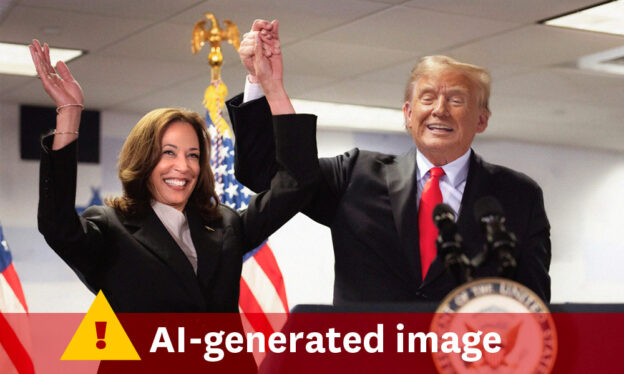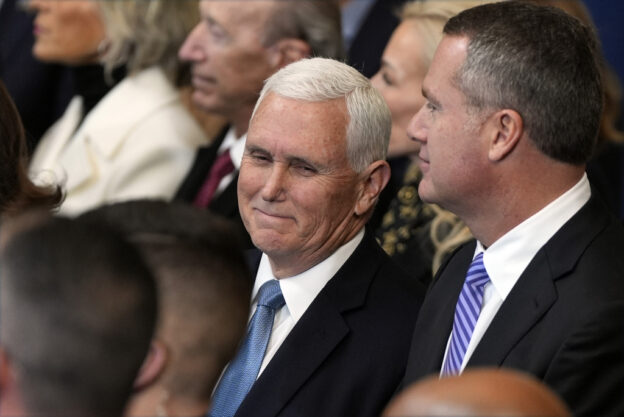For better or worse (worse, I’d say, but the U.S. Constitution begs to differ), anyone in our country can approach you on the street, in a park or in any other public place and call you the vilest names he can muster. He or she can sing praises of mass murderers and express the wish that the members of an ethnic or religious group he doesn’t like die horrible deaths.
Say hi to the First Amendment.
Americans’ right to speak freely is, in most cases, something worth appreciating. Countries whose governments criminalize citizens’ ability to express opinions are generally not places where any of us would want to live. But, once speech is unlimited, anything goes.
Well not anything; there are exceptions. The Supreme Court has held that speech “directed to inciting or producing imminent lawless action” and “likely to incite or produce such action” is unprotected by the Constitution. Likewise, libel or slander, or – did you know? – threatening the life of the president or anyone in the order of succession to the presidency.
But Nazi marches, KKK rallies and angry mobs chanting “Globalize the Intifada” are all tolerated by U.S. law (if they don’t impede traffic). While that latter chant is in fact a threat – the intifadas were famously murderous affairs – the “imminent lawless action” isn’t present.
There are, however, cases where a “buffer zone” can legally be established, a police-enforced area off-limits to protesters. Where such zones can be created isn’t entirely clear. The Supreme Court has alternately upheld, struck down, or limited various buffer zones at places like medical clinics and residential neighborhoods or at funerals.
What about at a shul? Good question. And a pertinent one.
New York City Council Speaker Julie Menin has introduced legislation to creat a 100-foot buffer zone to prevent “harassment” and “intimidation” around sensitive sites such as shuls, mosques, churches, and schools.
New York Governor Kathy Hochul has proposed a statewide measure mandating a 25-foot protective zone around houses of worship. A coalition of New York lawmakers has introduced legislation to that effect.
Interestingly, when Ms. Hochul announced her plan last month, during her “State of the State” address in Albany,the audience applauded loudly, save one attendee, New York City Mayor Zohran Mamdani, who kept his hands in his lap.
“Progressive” groups like Jews For Racial & Economic Justice, Jewish Voice for Peace and IfNotNow oppose the proposed buffer zones. They want to preserve the right to, as has happened, shout slogans like“Globalize the intifada,” “Say it loud, say it clear, we support Hamas here” and “Death to the IDF” in the faces of Jews attending shul events that encourage the purchase of homes in Israel.
Those groups see such events as aiding “the dispossession of Palestinians,” and buffer zones as “unconstitutionally suppress[ing] political dissent.”
The fact that, according to the New York City Police Department, antisemitic incidents made up 57% of all hate crimes reported in 2025 (and that the trend has continued, with more than half of all hate crimes reported in January targeting Jews or Jewish institutions) would make buffer zones around shuls (and other houses of worship; the law cannot make distinctions based on religion) a reasonable thing. Jews these days feel (and often are) threatened with violence. Whether that reasonablity can pass legal muster will have to be seen.
If not, though, and hateful protesters are allowed to get in the faces of Jews interested in moving to Israel (something the protesters inadvertently bolster), perhaps a tactic successfully used in other contexts might prove useful.
Let the mob members shout and spit and threaten as they wish. Let the shul-goers ignore them (which will incense them even more) and just stoically walk into the building. And let a cadre of others photograph and video them as they are confronted by angry faces and endure verbal assaults.
There are archival photographs and film from 1930s Germany that show German citizens harassing Jews. Pairing those visuals with new ones showing contemporary haters similarly berating Jews in 2026 would make for a powerful set of images, easily shared widely with media and the public.
Maybe powerful images, of the sort that in other contexts have greatly affected public perception, can do the same thing here.
(c) 2026 Ami Magazine









